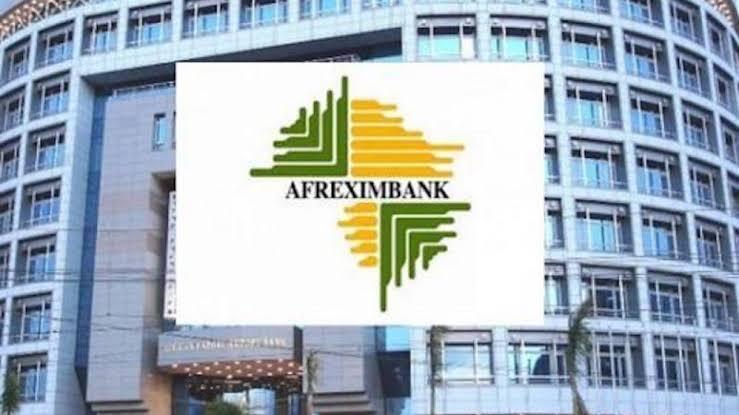Afreximbank’s Research Report indicates that Africa’s real Gross Domestic Product (GDP) is anticipated to grow by 4.0% in 2025, despite the prevailing global economic fragility.
The 2025 African Trade and Economic Outlook (ATEO) Report, produced by Afreximbank, forecasts that Africa’s real GDP will rise to 4.1% in 2026 and 4.2% in 2027.
As reported by the News Agency of Nigeria (NAN), the 2025 ATEO offers a comprehensive analysis of Africa’s economic and trade performance, projecting the continent’s growth trajectory in the near to medium term.
The report emphasizes key macroeconomic and trade developments that are pivotal to Africa’s recovery, detailing opportunities for sustainable growth amid increasing global and domestic uncertainties.
Notably, the report reveals that 41% of African economies are expected to grow by at least 5%, nearly double the global average of 21%, highlighting the continent’s expanding role as a catalyst for global growth.
The gradual recovery of Africa is expected to be bolstered by rising global demand for African exports, a trend of disinflation, and the execution of structural reforms aimed at diversifying economies across the continent.
However, the report also identifies potential downside risks to Africa’s economic outlook, including escalating geopolitical tensions and fluctuating commodity prices.
The report warns that an economic slowdown in the United States and China could affect international financial conditions and diminish demand for African resources. Additionally, internal conflicts and climate change pose threats to stability and growth.
On a more optimistic note, the report points to potential upside risks, such as a projected decline in global interest rates beginning in 2025, should geopolitical conditions remain stable, which may enhance access to financing.
Moreover, the African Continental Free Trade Area (AfCFTA) offers a significant opportunity to strengthen economic integration and intra-African trade, thereby reducing vulnerability to external shocks in the medium term.
To mitigate potential downside risks, the report recommends several short-term strategies, including adopting a nuanced and proactive monetary policy stance, enhancing resilience against climate-related and geopolitical disruptions, boosting domestic consumption, and accelerating the implementation of the AfCFTA agreement.
In the medium term, it suggests a shift towards economic diversification through strategic investments in human capital development and workforce training in key emerging sectors.
Furthermore, the report emphasizes the importance of improving economic governance, public infrastructure, and initiatives to bolster intra-African trade dynamics.
The report outlines several challenges and solutions for Africa to achieve stability and sustainable development in an increasingly uncertain global landscape.
The first challenge is Africa’s reliance on commodity exports, which leaves countries vulnerable to fluctuations in global commodity prices. To mitigate this risk, a structural shift towards a more diversified and resilient economy is essential.
The second challenge pertains to debt sustainability, with many African nations allocating over 50% of their revenues to servicing debt due to substantial development financing needs. Ensuring debt sustainability will require more efficient public spending and prioritization of growth-oriented investment projects.
The third challenge involves human capital and skill development. The report advocates for increased government investment in healthcare and fostering collaboration between public and private sectors. Strengthening training in science and technology is vital for skill development and successful structural transformation.
The fourth challenge concerns the inadequate social outcomes of economic growth in Africa, marked by slow progress in poverty reduction. To enhance growth that reduces poverty, it is crucial to improve basic public infrastructure and services, along with reducing dependency on natural resources through structural transformation. Addressing inequalities should be central to sustainable development goals, ensuring equitable access to quality education, healthcare, energy, transport infrastructure, and financial services.
The final challenge identified is the rising concern over environmental degradation and the increasing frequency of extreme weather events. For sustainable economic development, promoting green growth must align with comprehensive policy frameworks that address climate change adaptation and mitigation strategies while recognizing the continent’s development needs and challenges.
The 2025 ATEO provides an extensive analysis of Africa’s economic and trade performance, projecting the continent’s growth trajectory in the near to medium term. (NAN)









